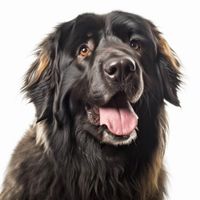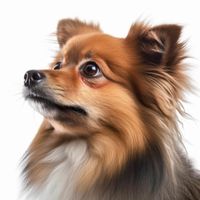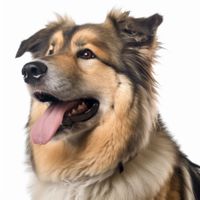Newfoundland - vs - Pomeranian - vs - Alaskan Malamute
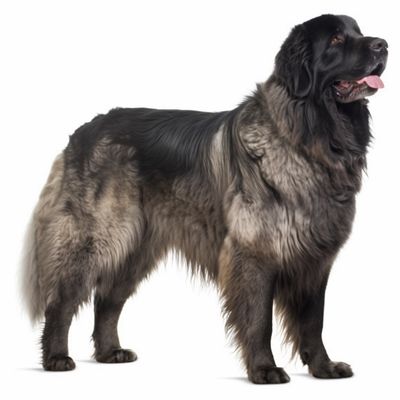
Newfoundlands are extra-large dogs, weighing 100-150 lbs, with a height of 26-28 inches.
Newfoundlands have a medium energy level and enjoy regular exercise, but they are not as demanding as some other breeds.
Newfoundlands require regular exercise, including daily walks and playtime, to keep them happy and healthy.
Newfoundlands are intelligent dogs, but they can be independent thinkers, making training moderately challenging.
Newfoundlands are intelligent dogs and are known for their problem-solving abilities.
Newfoundlands can adapt to various living situations, but they need enough space to accommodate their large size.
Newfoundlands are known for their gentle and protective nature towards children, making them great family dogs.
Newfoundlands generally get along well with other pets when properly socialized.
Newfoundlands are well-suited to cold climates due to their thick, double-layered coats.
Newfoundlands may struggle in hot climates due to their thick, double-layered coats.
Newfoundlands have seasonal shedding and require regular brushing to manage their thick coats.
Newfoundlands require regular grooming, including daily brushing and occasional trims, to maintain their thick, double-layered coats.
Newfoundlands bark occasionally, usually only when necessary or provoked.
Newfoundlands may have some health issues, requiring regular veterinary checkups and preventative care.
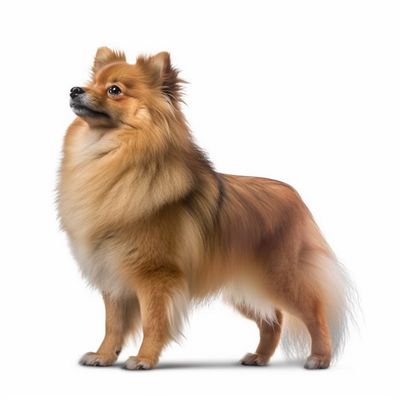
Pomeranians are small and fluffy, weighing 3-7 lbs and standing 6-7 inches tall.
Pomeranians are active and lively, but they don't require extensive exercise.
A daily walk and playtime are enough to keep a Pomeranian happy and healthy.
Pomeranians are intelligent and can learn quickly, but they can be stubborn at times.
Pomeranians adapt well to different living situations, making them suitable for city or country life.
Pomeranians can be good with kids but are better suited for families with older, gentle children.
Pomeranians can get along with other pets, but early socialization is important.
Pomeranians have a thick double coat that helps them tolerate colder temperatures.
Pomeranians can handle some heat, but make sure to provide shade, water, and avoid overexertion.
Pomeranians shed seasonally, so regular brushing is necessary to manage their coat.
Pomeranians require regular brushing and grooming to maintain their fluffy appearance.
Pomeranians are generally healthy, but regular veterinary checkups and preventative care are still necessary.
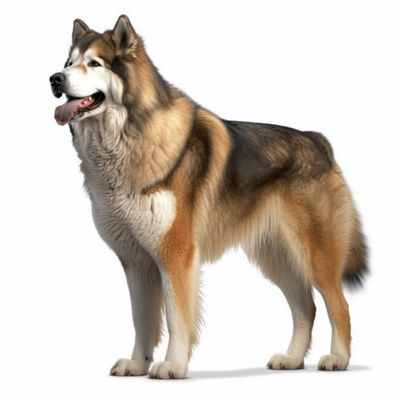
Alaskan Malamutes are large dogs, weighing 75-85 lbs, with a height of 23-25 inches.
Alaskan Malamutes have a medium energy level and require regular exercise and mental stimulation.
Alaskan Malamutes need a significant amount of exercise, including daily walks, runs, and opportunities for play and exploration.
Alaskan Malamutes can be challenging to train due to their independent nature. Consistent, positive reinforcement and patience are essential.
Alaskan Malamutes are highly intelligent dogs and excel in various dog sports and activities, especially those involving endurance and strength.
Alaskan Malamutes can adapt to different living situations, but they need plenty of space and exercise to thrive.
Alaskan Malamutes are good with children when properly socialized and supervised.
Alaskan Malamutes can get along with other pets, but their high prey drive may require caution around smaller animals.
Alaskan Malamutes are well-suited for cold climates, thanks to their thick, double-layered coats.
Alaskan Malamutes are not well-suited for hot climates and need to be monitored for signs of overheating during exercise.
Alaskan Malamutes have thick double coats that shed heavily, especially during seasonal shedding periods.
Alaskan Malamutes require frequent grooming, including regular brushing and occasional bathing to keep their coats clean and healthy.
Alaskan Malamutes bark occasionally, usually only when necessary or provoked.
Alaskan Malamutes may experience some health issues and require additional care and attention, such as regular veterinary checkups, preventative care, and potential medication or treatments.

